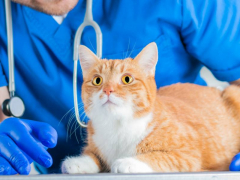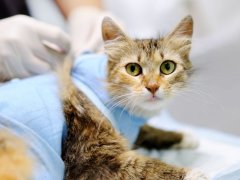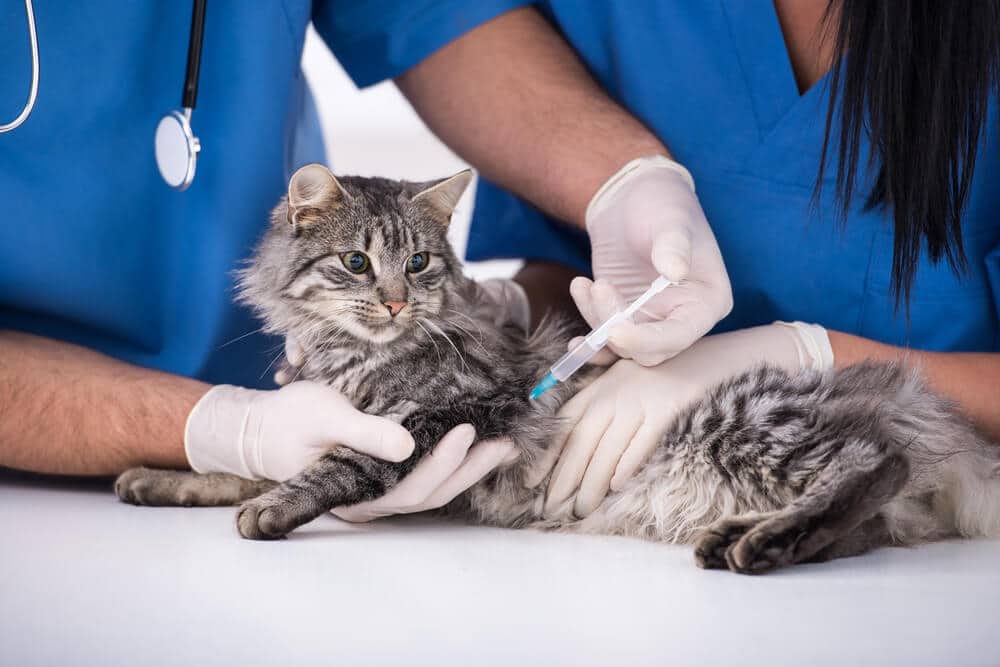
The rabies vaccine protects your cat from becoming infected with rabies, a virus that causes deadly brain inflammation. Rabies is a zoonotic disease, which means it can be transmitted from animals to people.
Rabies is transmitted to pets and people by wild animals like bats, foxes, raccoons, and skunks. Animal bites are the most common mode of transmission. Rabies is almost always a fatal disease.
In the United States, the rabies vaccine is often required by law for cats (as well as dogs and, in some states, ferrets).
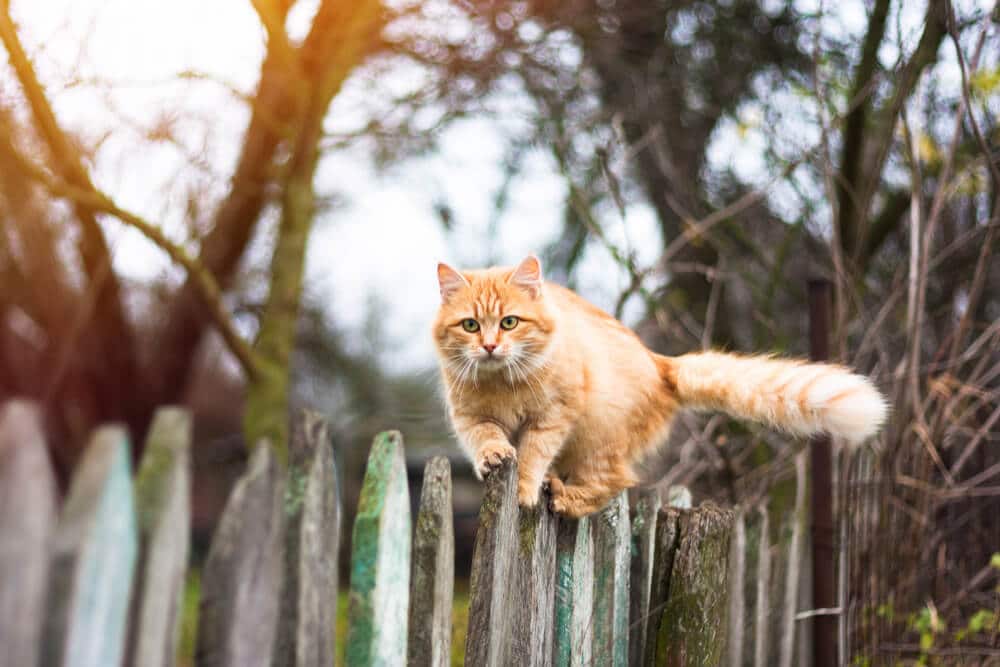
In most U.S. states, rabies vaccinations are required by law for all cats, regardless of if they live outdoors or inside.
A few states do not require rabies vaccination for cats, but the vaccine may still be recommended by your veterinarian if your cat is at high risk for getting rabies (for example, if your cat goes outside).
Laws vary regarding who is required to give the rabies vaccine to your cat. In some states, only a licensed veterinarian can administer the rabies vaccination. In other states, a credentialed veterinary technician (under the direct supervision of a licensed veterinarian) is also permitted to give a cat the rabies vaccine.
The American Association of Feline Practitioners (AAFP) oversees a Feline Vaccination Advisory Panel, which periodically reviews the vaccination guidelines and research and offers recommendations for all cats. Pet owners can read the 2020 American Animal Hospital Association/AAFP Feline Vaccination Guidelines online.
Some vaccines are considered “core,” meaning they are recommended for all cats. Core vaccines include feline panleukopenia virus (FPV), feline herpesvirus (FHV-1), and feline calicivirus (FCV). Other vaccines, like feline leukemia virus (FeLV), are considered “non-core vaccines,” which means they are recommended for some cats, but other cats might not need it.
According to the AAFP feline vaccination guidelines, rabies is categorized as a non-core vaccine. However, state law trumps the AAFP feline vaccination guidelines, and most states require a rabies vaccine for cats. Your veterinarian can advise you if your cat needs to be vaccinated for rabies or not.
What Is A Rabies Vaccine For Cats?
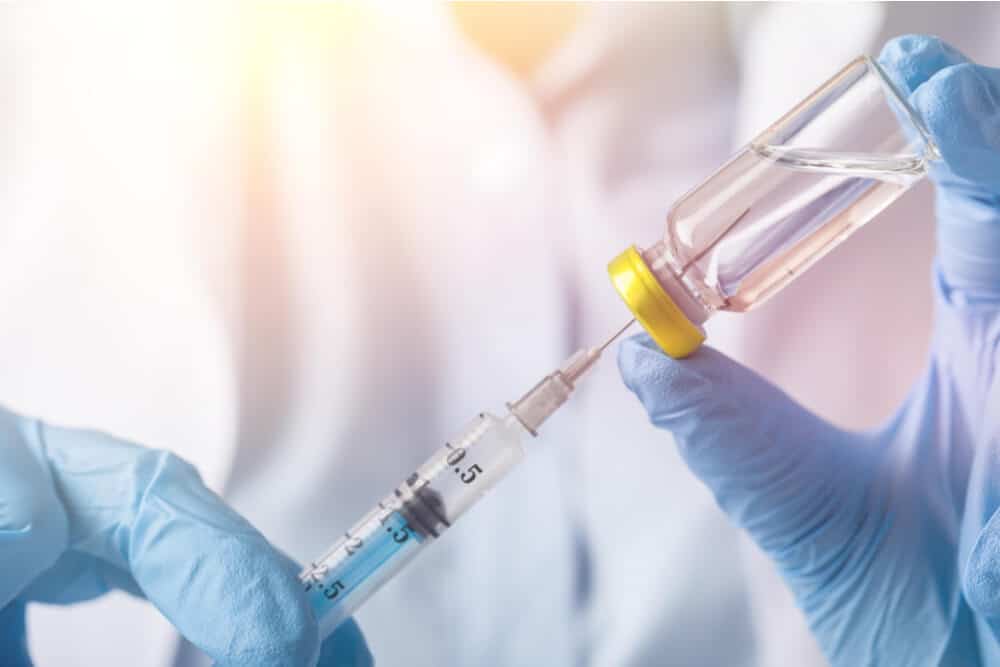
A rabies vaccine contains a minuscule amount of the rabies virus, giving your cat immunity to the disease-causing virus.
The rabies vaccine (also called a rabies immunization or rabies shot) is a killed (inactivated) vaccine, meaning that the minuscule amounts of rabies virus within the vaccine will not cause disease.
Rabies vaccines may be adjuvanted or non-adjuvanted. Adjuvanted vaccines contain extra substances intended to increase the immune response to the vaccine. Non-adjuvanted vaccines do not contain these substances.
The rabies vaccine is injected into your cat’s body and will stimulate the cat’s immune system to mount an immune response against the rabies virus.
The cat’s body then develops the ability to create antibodies that can fight the rabies virus if the cat is ever bitten by a rabid animal. The antibodies help your cat fight off the disease, preventing your cat from developing rabies.
What To Expect After The Rabies Vaccine For Cats?
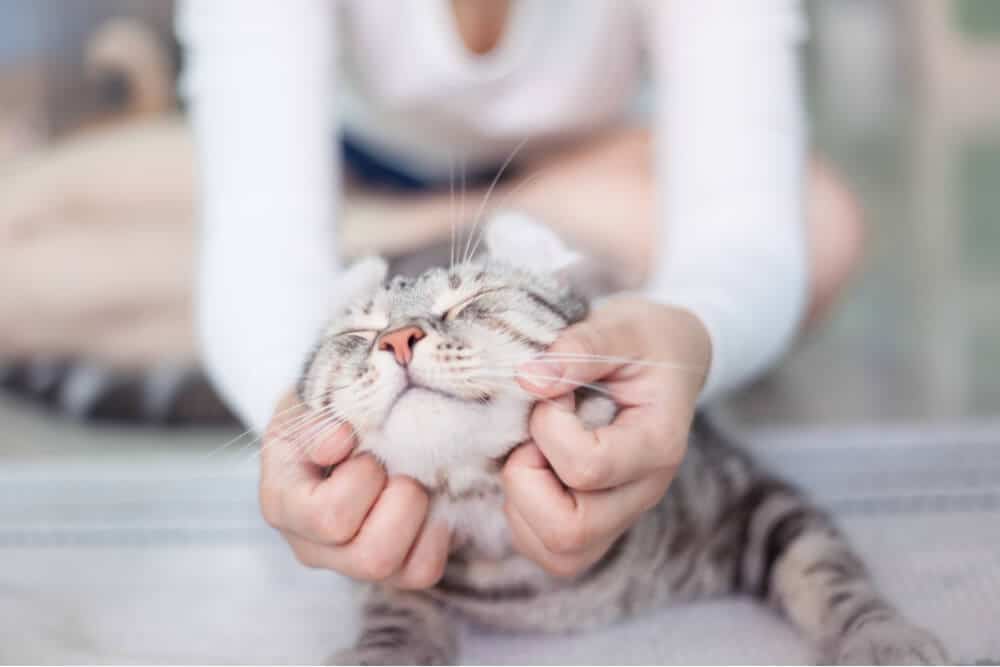
Rabies vaccine should not be given to kittens until they are 12 weeks of age (3 months of age) or older. Kittens and adult cats that have never been vaccinated receive a single dose of the rabies vaccine and should be revaccinated one year after the initial vaccination.
How Often Do Cats Need Rabies Shots?
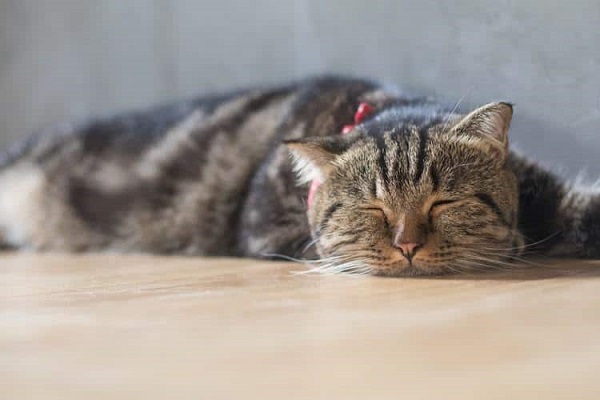
After the one-year booster, cats should receive a booster shot every one or three years, depending on the rabies vaccine used.
Also Read: Cat Vaccination Schedule
After your cat receives a rabies vaccine, she might experience soreness where the vaccine was injected for a few days. Some cats feel sleepy or lazy after getting a rabies shot, but this is usually short-lived.
How Much Does a Cat Rabies Vaccine Cost?
The price for a rabies vaccine can vary, depending on where you live and who vaccinates your cat. At your local veterinary hospital, you could pay anywhere from $15 to $28 per vaccine. If you combine cat vaccinations with a yearly wellness exam, the cost will be higher since you are paying the exam fee, too (the cost of an exam also varies, but it might range anywhere from $45 to $55).
You can save some money by taking your cat to a low-cost vaccination clinic, which might be offered by your veterinary clinic, a humane society in your area, or your local government. Vaccines at low-cost shot clinics may be as low as $10 per vaccine, with no exam fee. However, it’s always a good idea to have your cat examined by a veterinarian before she gets vaccinated because it’s not safe to give vaccines to a cat that is ill or running a fever.
Rabies Vaccination Side Effects

The rabies vaccine, although extremely safe, does carry some risk of side effects.
Some common side effects of the rabies vaccine—and other vaccines like FPV, FCV, and FeLV—include:
- Discomfort at the vaccination site
- Swelling or a lump at the vaccination site
- Low-grade fever (a normal cat temperature is 100.5 to 102.5 degrees Fahrenheit)
- Lethargy (low energy)
- Lack of appetite
Rarely, cats may experience more serious side effects to the rabies vaccine. Anaphylaxis, a severe allergic reaction, can cause life-threatening symptoms.
Rabies Vaccine Reaction in Cats
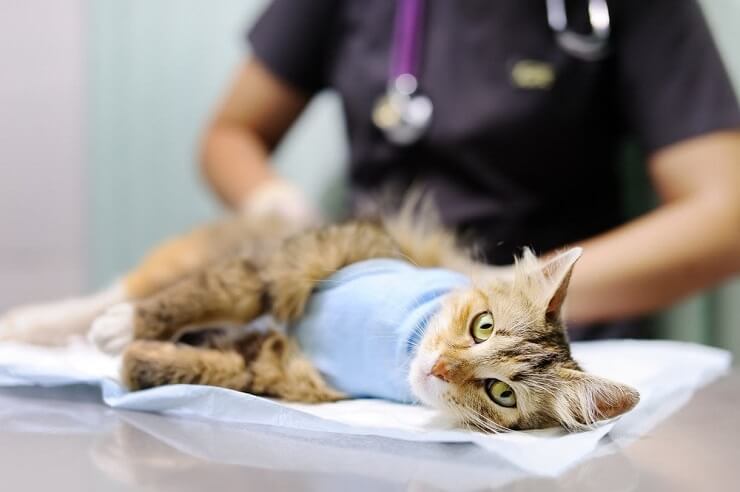
If your cat develops any of the following symptoms within a few hours of getting the rabies vaccine, call your veterinarian or an emergency veterinary hospital:
- Hives (raised bumps on the skin)
- Facial swelling
- Difficulty breathing
- Vomiting
- Diarrhea
- Weakness
- Collapse
If your cat experiences an allergic reaction to the rabies vaccine, it doesn’t automatically mean she can’t ever be vaccinated again.
Your veterinarian will work with you to determine a plan for future rabies vaccines, such as giving the rabies vaccine separately from other vaccines, administering a medication prior to giving the rabies vaccines to prevent a reaction or, in some cases, not giving the vaccine again.
Feline injection-site sarcomas (FISS) can also occur with any vaccine, including the rabies vaccine.
FISSs are rare, occurring in approximately 1 out of every 10,000 to 30,000 vaccinations. FISSs are cancerous tumors that develop at the injection site months or even years later. If you find a lump where your cat got her rabies shot, contact your veterinarian immediately. Although most lumps do not go on to become FISSs, your veterinarian will closely monitor it to make sure it goes away on its own.
Rabies vaccines are something many cats need, either due to the law or the cat’s individual risk. Cat owners should talk to their veterinarians to find out if their cat needs a rabies vaccine, and how often rabies booster vaccinations are needed.
Want To Learn More About Vaccines In General? Read Our Cat Vaccination Guide.

